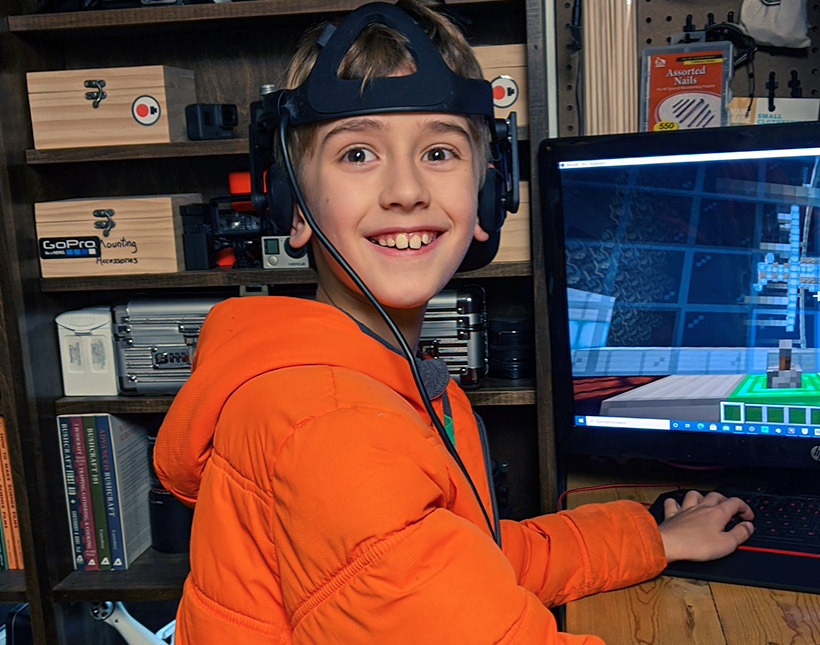How Playing Video Games Affects Your Brain
It’s no secret that playing video games is a popular pastime. What may be less known, however, is the effect that video gaming has on the brain. Recent studies have shown that video gaming can have positive and negative effects on the brain, depending on factors such as age, amount of gameplay, and type of game played. In this blog post, we will take a closer look at how video gaming affects the brain and discuss some of the gains and flaws of playing video games.

Gains
Playing video games has been shown to have several positive effects on the brain. In addition, video games have been shown to improve mood and reduce stress. Below are more positive effects of playing video games.
Memory
A study found that older adults who played video games were better able to recall information than those who did not. The games seem to exercise our brain in a way that helps to improve our memory and cognitive skills.
Another study found that people who played action-based video games had better short-term memory and attention span than those who played non-action games. The fast-paced nature of action games seems to help improve our ability to process information quickly and efficiently.
So, next time you pick up a controller or play online roulette tables at Joe Fortune Casino, you may be doing more than just passing the time. You may be helping to improve your memory.
Spatial Awareness
It is the ability to perceive and understand the relationship between objects in space. It’s an essential skill for activities like driving and navigation, and it can be improved with practice.
Studies have shown that playing action-based video games can help to improve a person’s spatial awareness. This is likely because these games require quick thinking and split-second decisions, forcing players to be constantly aware of their surroundings.
As a result, players who frequently play these types of games may have an easier time understanding and navigating complex environments.
Decision Making
Decision-making is a complex cognitive process that requires the ability to weigh multiple options and make a choice based on the available information. This process is essential for everyday life and can be challenging to learn.
Research suggests that playing video games may help improve decision-making skills. A research study found that participants who played action games were better able to make decisions under time pressure than those who did not play games.
A second study found that strategy game players were better able to find the best solutions to problems than non-players.
These studies suggest that video games can positively impact decision-making skills, which may have implications for real-world applications. For example, people playing video games may be better equipped to handle emergencies. Ultimately, further research is needed to explore the potential benefits of video gaming for decision-making skills.
Mood
Games can help us to relax and forget about our troubles, providing a much-needed respite from the stresses of everyday life. What’s more, games can also help to improve our mood by increasing dopamine levels, the “feel-good” neurotransmitter in the brain.
In fact, studies have shown that playing video games can be just as effective as taking antidepressants for treating depression. And it’s not just mental health benefits that games can provide; research has also shown that playing video games can help to improve physical health by increasing dexterity and coordination. So next time you’re feeling down, remember that firing up your favorite game could be just what the doctor ordered.

Flaws
According to a growing body of research, playing video games can have a number of negative effects on your brain. While some of these effects may be temporary, others may be permanent, so it’s essential to be aware of the potential risks before picking up a controller. Let’s look at other negative effects video games have on our brains.
Increase Risk of Carpal Tunnel Syndrome
Playing video games can be captivating and entertaining, but it’s essential to be aware of the potential risks they may pose to your health. A recent study found that people who play video games are more likely to develop carpal tunnel syndrome and other hand and wrist injuries. It is believed that the repetitive motion of using a game controller puts strain on the muscles and tendons in the hand and wrist, leading to inflammation and pain. If you enjoy playing video games, it’s essential to take breaks often and stretch your hands and wrists to reduce your risk of developing these injuries.
You should also see a doctor if you experience pain or numbness in your hands or wrists while gaming, as this could be an early sign of carpal tunnel syndrome. Being mindful of the risks can help keep yourself safe while enjoying your favorite pastime.
Poor Sleep Hygiene
The blue light emitted by screens can suppress the production of melatonin – the hormone that helps us feel sleepy. This can result in feeling wide awake when we should be winding down for bed. In addition, the stimulating nature of many video games can make it hard to quiet our minds and relax enough to fall asleep.

Conclusion
Playing video games has both positive and negative effects on the brain. It’s up to you as a gamer to make sure that the positives outweigh the negatives by playing mindfully and making healthy choices regarding gaming habits.
































































































